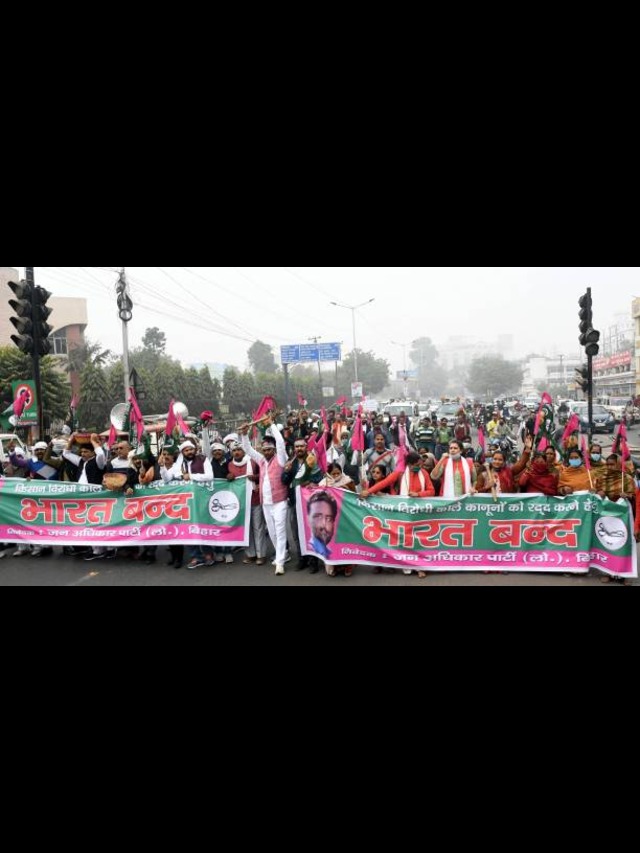Bharat Bandh on July 9, 2025, over fuel shortage halts transport nationwide. Petrol pumps dry, drivers protest rising fuel prices. Read full report.
India came to a partial standstill on July 9, 2025, as thousands of commercial drivers across the country launched a nationwide strike, triggering the latest Bharat Bandh in protest against an intensifying fuel shortage and soaring prices. The protest, led by several transport unions and driver associations, caused massive disruption in fuel supply, public transportation, logistics operations, and daily life in many states.
The strike saw truck drivers, auto-rickshaw operators, taxi services, and even some private transport unions joining hands to express frustration over the unavailability of diesel and petrol in several cities. Petrol pumps ran dry in many areas, especially in Odisha, West Bengal, Chhattisgarh, and parts of Uttar Pradesh and Bihar. In Bhubaneswar and Cuttack alone, over 70% of petrol pumps were either shut or out of fuel by the afternoon. Similar reports came in from Ranchi, Raipur, and Asansol, with drivers queuing for hours only to be turned away empty-handed.
Drivers’ associations claim that the government’s failure to manage the supply chain has left them helpless, forcing them to take the drastic step of calling a Bharat Bandh. “We have been working without proper pay, and now we can’t even afford to fill our tanks. This is not just about us—it’s about the entire nation’s supply chain,” said Mahesh Kumar, a trucker from Jharkhand who has joined the strike. Protesters blocked highways, parked vehicles in large numbers along roadsides, and staged sit-ins outside oil depots.
The impact was immediately visible. Across cities, public transportation came to a halt, cabs and autos went off the road, and school buses were delayed or canceled. In industrial belts, where transport is key to freight and factory operations, production was halted or slowed down. In some regions, residents reported black market rates for fuel, with diesel being sold at ₹110–₹120 per litre in cash.
Official figures estimate that over 2,000 fuel stations across India reported either empty tanks or service disruption. The diesel crisis affected nearly 60% of long-haul freight movement, leading to a surge in transportation costs. As a result, prices of essential goods such as vegetables, dairy, and medicines started climbing locally due to delivery delays.
Government response so far has been limited to assurances. A senior official from the Ministry of Petroleum and Natural Gas stated that efforts are underway to boost supply from refineries in Paradip, Haldia, and Jamnagar. However, the root causes of the shortage—pipeline disruptions, state-level fuel taxes, and hoarding—remain unresolved. The official also confirmed that discussions with driver unions would be held soon, but no firm resolution had been reached.
Meanwhile, social media saw massive engagement under hashtags like #BharatBandh, #FuelCrisis, and #DriversStrike, with photos and videos of empty petrol stations, long queues, and highway protests going viral. By noon, #BharatBandh was trending across Twitter and Instagram with over 2.5 million posts.
Transport and logistics industry experts warned that if the bandh continues for more than 48 hours, the economic impact could be severe. “We are already seeing delays in warehouse deliveries and rising freight rates. If fuel remains scarce, the supply chain will break,” said a logistics coordinator from Kolkata.
In rural and tribal areas, the crisis is even worse, with ambulances, tractors, and water tankers stranded without diesel. This has raised public health concerns, especially in regions already battling poor infrastructure and heatwave conditions.
With no immediate solution in sight and rising public anger, the government is under pressure to act fast. Transport unions have warned that if their demands for regulated fuel prices, better supply control, and support for drivers are not met, the bandh could be extended indefinitely.
As India waits for relief, the Bharat Bandh once again reveals the fragility of the country’s fuel and transport system. Without urgent intervention, this fuel shortage crisis could deepen further in the coming days.
Also read other post from Allindiainsights,com like Nationwide Strike : Bharat Bandh on July 9 Brings India to a Halt

